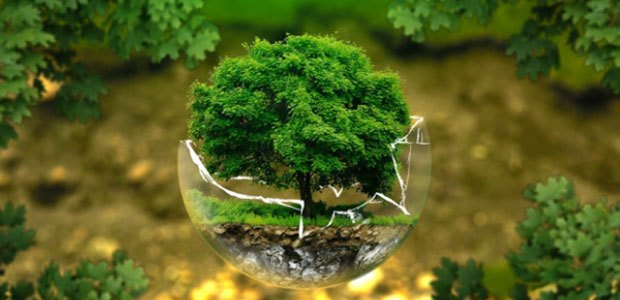
Three Environmental Issues and Ways to Combat Them
For years now, humans have mistreated and contaminated the very environment that sustains them. But the broad concern for the environment can be so overwhelming that people don’t know what to do or where to start making a difference.
For years now, humans have mistreated and contaminated the very environment that sustains them. But the broad concern for the environment can be so overwhelming that people don’t know what to do or where to start making a difference.
The list of issues surrounding our environment go on, but there are three major ones that affect the majority of them overall: global warming and climate change; water pollution and ocean acidification; and loss of biodiversity. These three issues need immediate attention and proactive action on our part to ensure conservation of the only habitable planet which we call our home. And, focusing attention on these three major topics will have a ripple effect on a number of smaller environmental issues like inefficient recycling systems and food waste.
Let’s look at three major environmental issues and some solutions which can help combat them:
Global Warming and Climate Change
Human activities have made global warming and climate change a global threat. The rising levels of CO2 and other greenhouse gases have caused an increase in average global temperatures, extreme weather events, rising sea levels and other negative changes. These changes are directly and indirectly affecting all life forms. Pollution of air, land and water through excessive deforestation, industrialization and overfilling landfills which emits CO2 and adds to greenhouse gas emissions are all topmost causes of these environmental issues. Here are some effective solutions to these problems:
- Invest in and encourage production of sustainable technology
- Commercial and residential buildings should aim to achieve zero-emission or zero-waste
- Improve waste compaction in landfills with smart technology like stationary compactors which helps free up space for other constructive uses. It comes in varying capacities and configurations for handling different volumes of trash
- Increase forest cover, restore sea grasses and boost use of agricultural cover crops to reduce the amount of CO2 in atmosphere.
Water Pollution and Ocean Acidification
Rapid urban development, improper sewage disposal by industries, oil spills, disposal of chemical and radioactive wastes, and plastic pollution are some of the major causes of water pollution. Today, water scarcity and polluted water are posing a big threat to the human existence across many nations of the world.
Ocean waters absorb around 30 percent of the carbon dioxide that is released in the atmosphere. Ocean acidification occurs when the CO2 absorbed by the seawater undergoes a series of chemical reactions which leads to increased concentration of hydrogen ions, thus making the seawater more acidic. This decreases the carbonate ions in the seawater which makes it difficult for clams, deep sea corals, oysters etc. to build and maintain their shells and other calcium carbonate structures. These changes in the ocean water chemistry can affect the behavior of other organisms also. This puts the entire ocean food web at risk. Listed below are some measures which can help prevent water pollution and ocean acidification:
- Practice more effective measures to contain spills
- Curtail storm water runoff and plant trees near water bodies to reduce soil erosion
- Expand the network which monitors the measuring of acidity levels to provide researchers and shellfish farmers with long-term and real-time pH data
- Incorporate ocean acidification threats into the coastal zone management plans of states
- Increase marine protection measures
Loss of Biodiversity
Biodiversity helps maintain the balance of the ecosystem and provides biological resources which are crucial for our existence. Habitat destruction, climate change, pollution, secondary extinction and introduced species are a few ways in which humans are wreaking havoc on the biodiversity of this planet. Loss of biodiversity can be countered in a number of ways:
- Government should create and implement stricter policies and laws related to conservation of biodiversity
- Stop habitat destruction and encourage its restoration
- Practice sustainable living
- Reduce invasive species
- Research innovative ways to preserve biodiversity and educate the populace about it
Awareness and adaption are two key steps towards conserving this boon called environment. Each one of us can and should do their bit to curb the effects of these environmental issues and ensure that our future generations have a healthy planet to live.